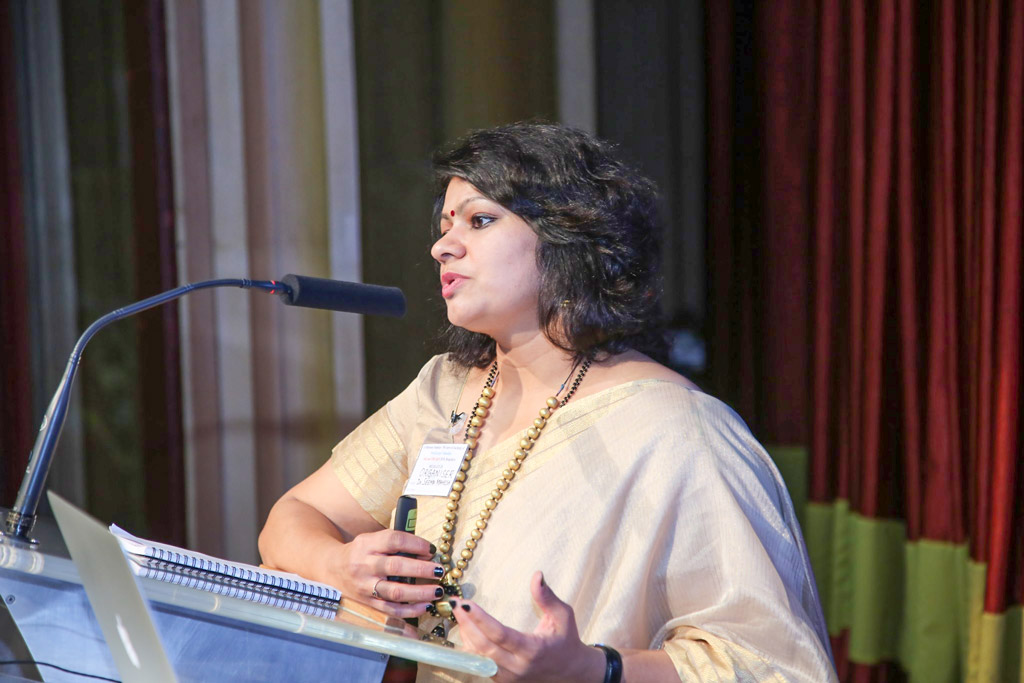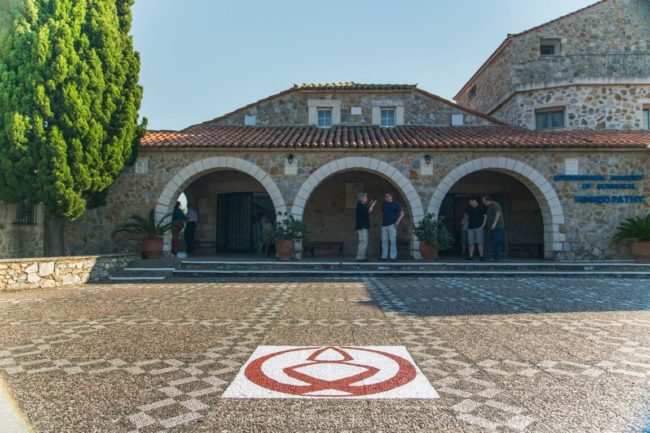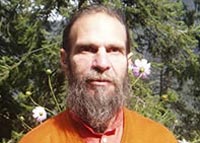When Dimple Kirpalani interviewed Dr Seema Mahesh at IACH
Curiosity has always been the trait that served me better than any others. It lead me to Homeopathy Research and guided me well as I practiced over the years. This same attitude lead me to the International Academy of Classical Homeopathy (IACH) in Alonissos, Greece where I rediscovered my joy of practicing as I studied under the tutelage of Professor George Vithoulkas. Since then I have had the privilege of meeting so many like-minded practitioners that my cup of happiness has been full to the brim. Nothing creates success like success and nothing challenges us more than people who have accepted and won challenges and recorded those victories. Dr. Seema Mahesh was introduced to me as one of the teachers at IACH. When I approached her for a webinar series with the Australian Homeopathic Association I recognised a kindred soul. We got chatting and when I asked her about her scheduled move to Malaysia I was pretty surprised by her answer:
I am currently doing MSc, PhD in Medical Sciences at the Taylor’s University, Malaysia (a top ranked university in Asia). My research topic is “Long-term effects of antipyretic treatment in the elderly”
Here was a homeopath who was serious about making a difference in the world and was willing to leave her family back in India to study in a different country just so that she could add to the clout of her research capabilities. But this was only the beginning of a very interesting conversation which I felt was important to write down. I am sure there are many like me who would feel totally motivated by such a conversation.

Can you tell us a little bit about yourself and your position at the IACH?
I completed my Bachelor’s in homeopathy with the Rajiv Gandhi University of Health Sciences, Bangalore, in 2003. I was the first person to achieve the level of Distinction in this university. Later I completed my MD with a specialisation in Organon of Medicine. During my bachelor’s I met my husband, a senior in the same college, who introduced me to the teachings of Prof Vithoulkas. Later, after my marriage to Mahesh, we became even more entrenched in his teachings. Finally, in the year 2006 we had the opportunity to learn from him directly. This opened a new chapter in our lives. Our practice became much more refined and successful. With that, Professor Vithoulkas gave us the responsibility of teaching the video course (now E-learning) here in India. The course was like an oasis in the desert for us starved of scientific knowledge. As we went on, I discovered that I was good at writing homeopathic articles and started writing in every portal that wanted one. At such a time Professor Vithoulkas asked Mahesh why he wasn’t publishing his dramatic gangrene cases. This sparked an interest in evidence-based publications for me and the first article with five gangrene cases was published under Professor Vithoulkas’ guidance. This was just the beginning. I had a long way to go, but I realised that this was what I was meant to do. I became fully involved and committed to honing my skills and learning to ask the right questions. We published over ten peer-reviewed articles in medical journals in three years and the professor made me the Research Head of the International Academy of Classical Homeopathy. I realised at this point that I needed professional research training. I was fortunate enough to gain admission to one of the highest research output universities in South East Asia for graduate studies (despite already having an MD, I found this program extremely empowering). So… that is my story so far.

Why Homeopathy Research?
I have had the good fortune of learning under the legendary Prof. Vithoulkas. The clarity of how he lectured demonstrated the scientific nature of homeopathy to me. Yes, there is a very humanistic angle to homeopathy, lacking in the conventional medicine but that it is because it is a human science. So, when I started writing and digging further in this direction, I realised the experience and knowledge we have got has not been represented in homeopathic research at all. There were some studies but most of them were lacking the homeopathic principles’ backing. The problem was obvious to me – that we are dragging homeopathy to fit the technical requirements laid down by the conventional medicine. I knew there was much better work to be done and it turned out I was adept at it. More than that, the work gave me purpose and direction. It changed me completely. So, I have not stopped doing it. Yes, I am trying to do stuff that benefits homeopathy, but I am doing it because it feels right, and I cannot stop doing it.
What was your first research article and where was it presented?
Gangrene: Five case studies of gangrene, preventing amputation through Homoeopathic therapy, was my first research article. Mahesh (my husband) has treated over 100 gangrene cases and all are very impressive. This was the natural choice to write about at that time due to the dramatic nature of the cures and the undeniability of the effect of homeopathic treatment.
Have things changed since that first article was published?
Oh yeah!!! If I look back at my first article, I kick myself for being so naïve and unprofessional.
So far? There is one paper that I have currently submitted for peer review. It is a project consisting of over ten researchers from IACH, from four different countries. The “Continuum of a Unified Theory of Diseases” by Professor Vithoulkas states that (among other things) high fever or efficient acute inflammation is absent in people with established chronic conditions and with the right treatment of the chronic condition (read individualised homeopathy), the acutes with high fever will return. We conducted multiple smaller studies to investigate this and presented them in several medical conferences. I have now combined all the homeopathy research papers to write a research study paper. I am currently waiting to hear back from journals to learn who will publish it. You can READ A COPY HERE. This will be updated post the peer review.
Some of your research projects with the IACH have gained high acclaim. What’s so different about these projects that they have been better received than others?
Oh yes! We got the Certificate of Excellence at a conference at Harvard Medical School.
My understanding is that the biggest factor in favour of the IACH studies is its absolute adherence to homeopathic principles. That may seem like a small thing for people planning research, but the truth is that most studies fail to make a mark, despite being methodologically sound. This is because of their digression from the laws. Even when we are talking about general theories applicable to health and disease the background is still observations resulting from a practice that is adherent to the principles. Without harping on too much about the need for studies to keep to homeopathic tenets. I want to say that we may advance and make improvements, but we cannot forget the laws (advances in science do not mean the laws of gravity are no longer valid). They are interested in conducting much new research in homoeopathy.
At IACH, we have a whole team of people committed to the principles of homeopathy
The results of sheer hard work and fabulous clarity of knowledge. Science is beyond miracles and the numerous research articles from the IACH just show this every single time. I have been fortunate enough to see live cases when I visited Alonissos, cases which show every attending Homeopath the difference we can make and the lives we can change. Such cases need to shared and presented in the right manner and Homeopaths like Dr. Seema Mahesh help us do it the right way. We sure do live in exciting times!
Thank you to Aurum Project member, Dimple Kirplani for conducting this interview.
Searching Tags For Article: Dimple Kirpalani interviewed Dr Seema Mahesh at IACH, Dr Seema Mahesh Interviews, Dr Seema Mahesh Interviews with Dr. Dimple Kirpalani, Dr Seema Mahesh Interviews in IACH





